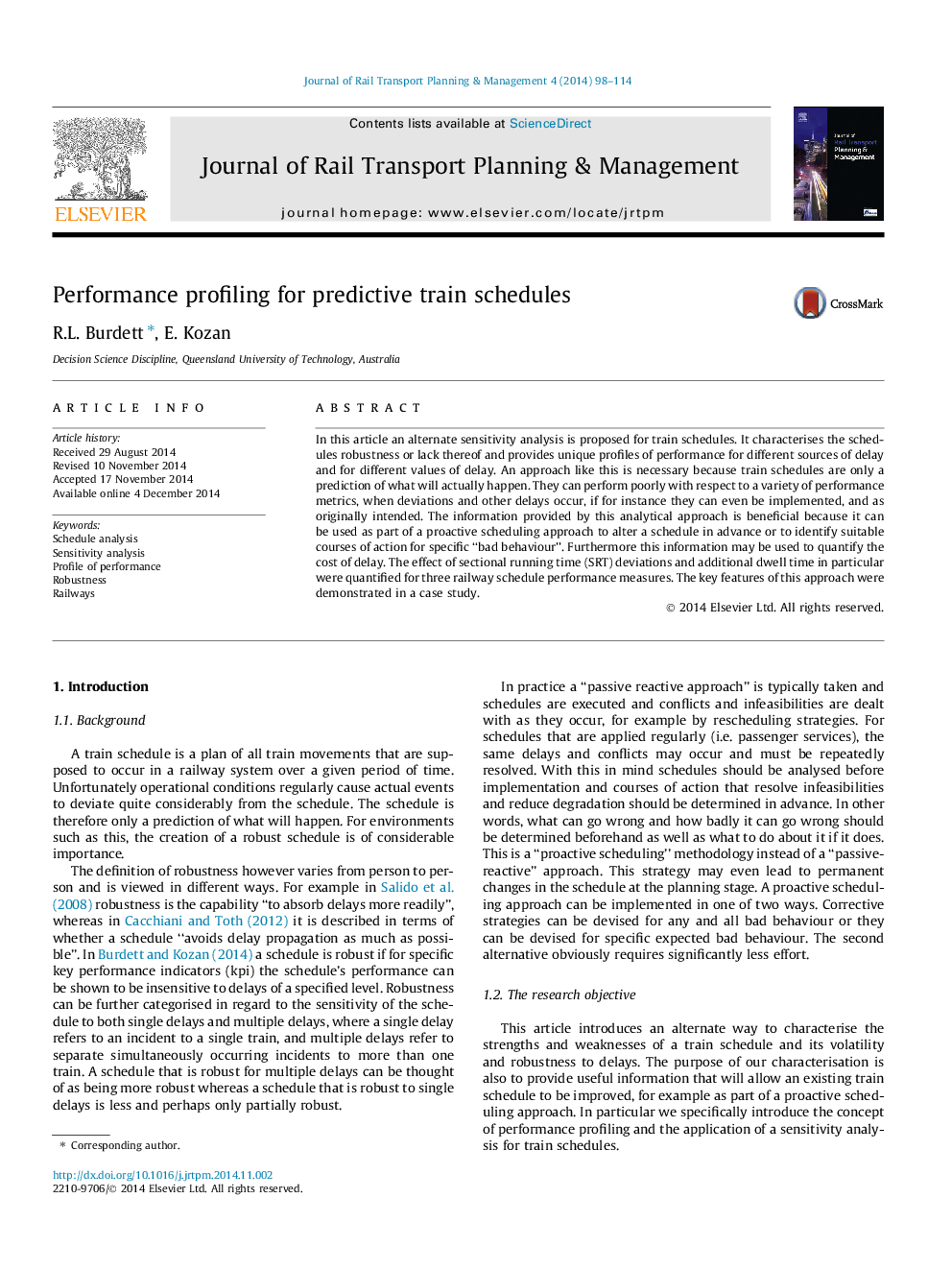| Article ID | Journal | Published Year | Pages | File Type |
|---|---|---|---|---|
| 286448 | Journal of Rail Transport Planning & Management | 2014 | 17 Pages |
•The concept of performance profiling was introduced for train schedules.•The proposed sensitivity analysis quantifies the effect of deviations and delays.•The analysis identifies which parts of the schedule are at most risk.•The analysis can validate the claim that an existing schedule is robust.•The information in the profiles can help improve existing schedules.
In this article an alternate sensitivity analysis is proposed for train schedules. It characterises the schedules robustness or lack thereof and provides unique profiles of performance for different sources of delay and for different values of delay. An approach like this is necessary because train schedules are only a prediction of what will actually happen. They can perform poorly with respect to a variety of performance metrics, when deviations and other delays occur, if for instance they can even be implemented, and as originally intended. The information provided by this analytical approach is beneficial because it can be used as part of a proactive scheduling approach to alter a schedule in advance or to identify suitable courses of action for specific “bad behaviour”. Furthermore this information may be used to quantify the cost of delay. The effect of sectional running time (SRT) deviations and additional dwell time in particular were quantified for three railway schedule performance measures. The key features of this approach were demonstrated in a case study.
